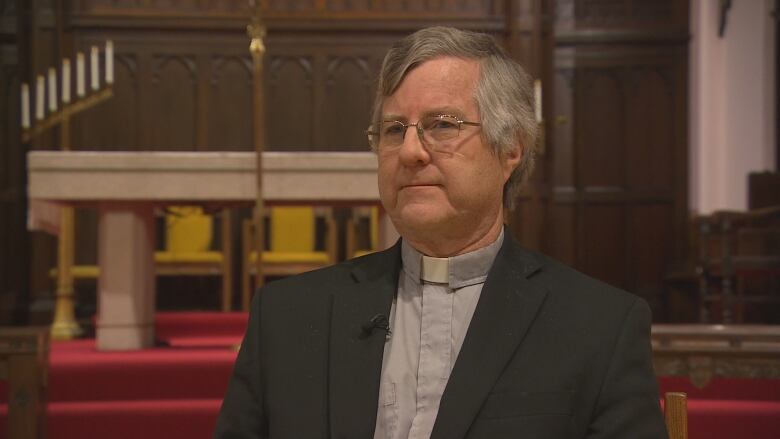Minnesota churches offer sanctuary as alternative to crossing border on foot
'Why should they make that journey and lose fingers and toes in the cold?'
A multi-faith group in Minnesota is offering up their buildings as sanctuary for people whose asylum claims have been rejected in the United States and who may be fearing immigration raids or considering crossing the international border on foot to apply for refugee status in Canada.
"We sensed the anxiety that our Latino [and] Latina brothers and sisters, and others from African countries, other places, have about travel bans and what was said during the campaign which makes them fearful," said James Erlandson, pastor of the Lutheran Church of the Redeemer in St. Paul, Minn.
Hundreds of people have crossed the Canada-U.S. border on foot since last spring. The RCMPhave already intercepted69 people this year alone.
Such people are then screened by the Canada Border Services Agency before being released.
Under international convention, someone who walks over the border can legally apply for refugee status in Canada.
However, if they present themselves at a border crossing, they'll be turned back to the United Statesunder the Safe Third Country Agreement,which requires them to file a refugee claim in the first safe country in which they arrive.
Several who have made the crossing on foot have been found suffering from frostbite and hypothermia. Two Ghanaian men who made the trek on Christmas Eve lost fingers and toes.

"Why should they make that journey and lose fingers and toes in the cold? Let's keep them safe and warm here," Erlandson said.
Erlandson's church is part of ISAIAH Minnesota, a group of Christians, Jews and Muslims dedicated to social justice for immigrants and refugees. Thirteen congregations have already signed up as sanctuaries.
'Moral and ethical protection'
In Erlandson's case, church members are planning to transform a choir room in the basement into a bedroom using cots or beds. Washrooms and a kitchen are just around the corner.
"It would be a pretty spartan existence but enough to keep someone for a few days," Erlandson said.
"We're not seeing this as a permanent thing. We hope it's not a longtime thing. We're hoping we don't even have to use that, but we're offering it if it's needed."
- Newcomer centre has no more room for border-crossing refugees
- IN DEPTH | How one Muslim man snuck across the U.S. border into Canada
There's no U.S. law saying immigration officers can't raid a church, but the ISAIAH group is counting on the long-standing tradition of safe houses.
"We have a history in this country of churches being able to practice their faith freely and that includes being able to offer sanctuary to people. It is a moral and ethical protection that we offer sanctuary to people who are in trouble, who are seeking a safe place," said Pastor Grant Stevensen, an ISAIAH staff member.
There have been no requests for sanctuary so far, Stevensen said, but with immigration raids happening across the country, including the Minneapolis area, he expects it's just a matter of time.

Sanctuary may be a nice idea in theory, but one Somali leader in Minneapolis says it's not a long-term solution.
"Folks arenot able to go to work orprovide for themselves. Why sit in one place and wait for immigration officers to come and get them? What is the next step for that individual?" askedMohamudNoor, executive director of theConfederation of Somali Communities in Minnesota.
Nooradvises anyone worried about imminent deportation to contact a lawyer to learn their legal options, rather than going into sanctuary or fleeing on foot across the border.
- Manitoba premier says security his 1st concern with refugees
- U.S.-Canada pact could split kids from families fleeing to Canada
In the meantime, he says advocates continue to fight U.S. President Donald Trump's immigration policies and the anti-immigration sentiment in the U.S. right now.
"This is America," Noor said. "Weknow how to fight, we're building resistance, we're not going to give in or give up. This is the land of immigrants and also the land of law. That can't be separated."
U.S. immigration officers have arrested more than 680 people in recent operations, 75 per cent of whom have criminal records, the country's homeland security chief said Monday.
The arrests follow an executive order signed by Trump on Jan. 27, which temporarily bans people from seven predominantly Muslim countries and all refugees from entering the United States. That order has since been suspended by a U.S. district judge, in a ruling upheld by a federal appeals court.
With files by Reuters













_(720p).jpg)


 OFFICIAL HD MUSIC VIDEO.jpg)
.jpg)



























































































